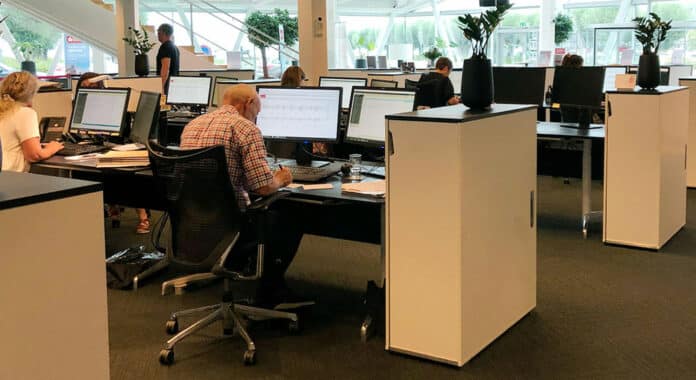In recent decades, the extension of individuals’ working life has been construed as an essential policy issue in Western Europe. Although this latter development has brought new nuances to the field of retirement studies, they have mostly been examined through quantitative surveys. Hence, understanding the complexities and nuances of recent retirement decisions remains limited.
A new study from the University of Copenhagen studied the complex pathways that lead to the retirement of senior employees in Denmark’s finance and production industries. It found an insidious uncertainty haunting senior employees regarding their capacity and reputation.
Senior employees often feel insecure about their position in the workplace because they fear that colleagues see them as worn-out and unproductive, which are common stereotypes about older employees.
Some of the most prevalent preconceptions about senior employees include being unproductive, rigid, and lacking in motivation. Although the preconceptions are frequently untrue, they still impact how senior employees view themselves and their position in the company. So, they represent a crucial consideration in the retirement decisions of many senior employees.
Author and Associate Professor Aske Juul Lassen from the University of Copenhagen said, “In our study, we refer to the uncertainty that senior employees feel about their status as ‘the worn-out syndrome,’ which is similar to the well-known imposter syndrome that is associated with a feeling of inadequacy. But there is an important difference: the senior employees we have interviewed are confident about their skills, and their colleagues are mostly positive about their contribution.”
“Senior employees thus seem to internalize the stereotypes about older employees in the labor market. In other words, the worn-out syndrome does not necessarily have anything to do with what colleagues think about a senior employee but rather with what the senior employee thinks the colleagues think about the senior employee. Combined with a latent fear of future decline, this uncertainty, unfortunately, leads to premature decisions about retirement.”
The study’s conclusions are based on ethnographic fieldwork conducted by Aske Juul Lassen and his colleagues at small and medium-sized businesses in Denmark’s finance and production industries, where they spoke with 92 senior employees, managers, union representatives, and human resources staff at eight different businesses.
The researchers observed distinct differences in the attitudes regarding elderly workers and the decline in the banking and production industries during their investigation. So, the fear of decline is more pervasive in the financial sector than in the production one. However, this does not imply that concerns about the decline and declining productivity are not present in the production sector. On the other hand:
Ph.D. student Marie Gorm Aabo says, “In the production industry, there is an openness about being worn out, which is typically equated with physical decline. This type of decline has been part and parcel of the public and political conversation for 100 years – and has led to many new pension schemes and policies. The worn-out body is, in other words, a matter of collective and political concern, whereas the worn-out mind is portrayed as an individual problem.”
“If we want to combat the stereotypes that inform the worn-out syndrome and senior employees’ untimely retirement decisions, senior employees and their colleagues and managers must find a way of discussing openly the fear and uncertainty that senior employees feel regarding their potential cognitive decline. A political discussion about cognitive decline and mental health – like the one we have had about physical decline – would be an important first step in this regard.”
Journal Reference:
- Marie Gorm Aabo, Katrine Mølgaard,Aske Juul Lassen. The worn-out syndrome: Uncertainties in late working life triggering retirement decisions. PLOS ONE. DOI: 10.1371/journal.pone.0282905
